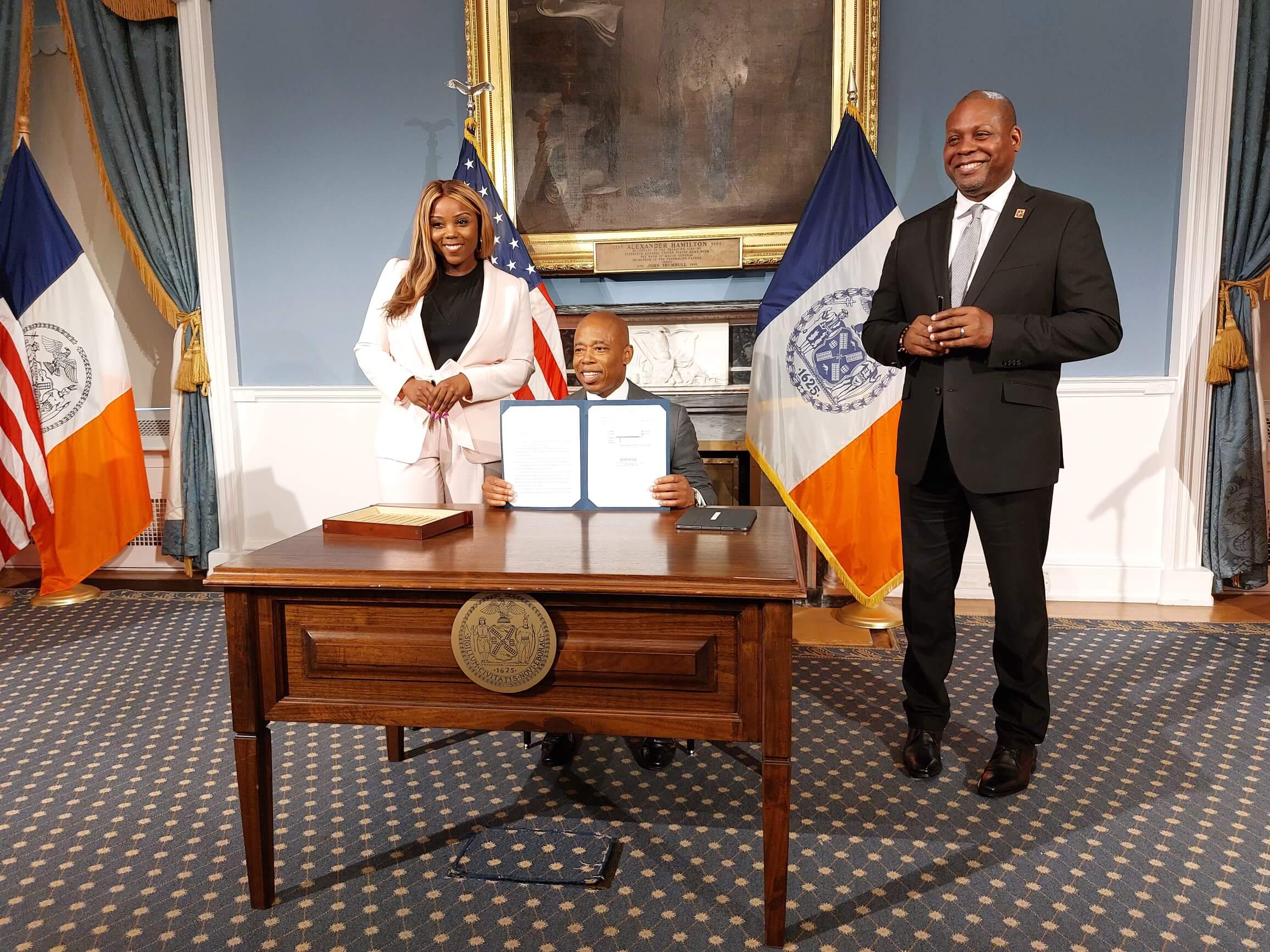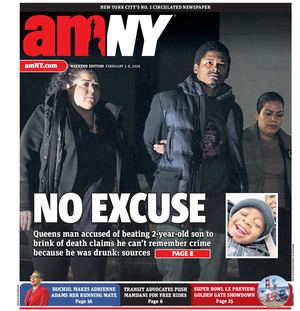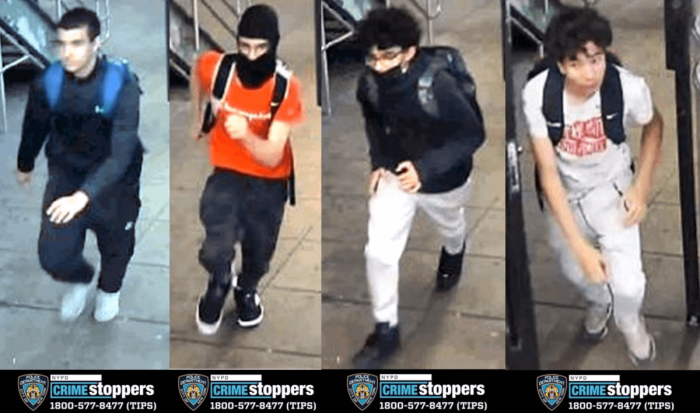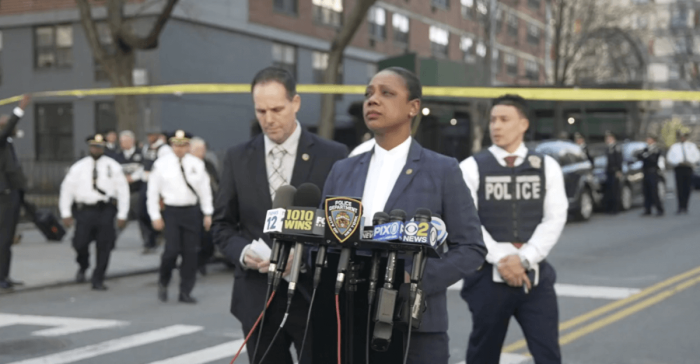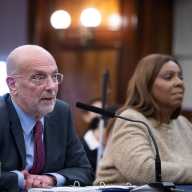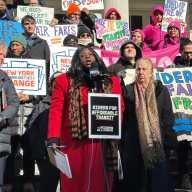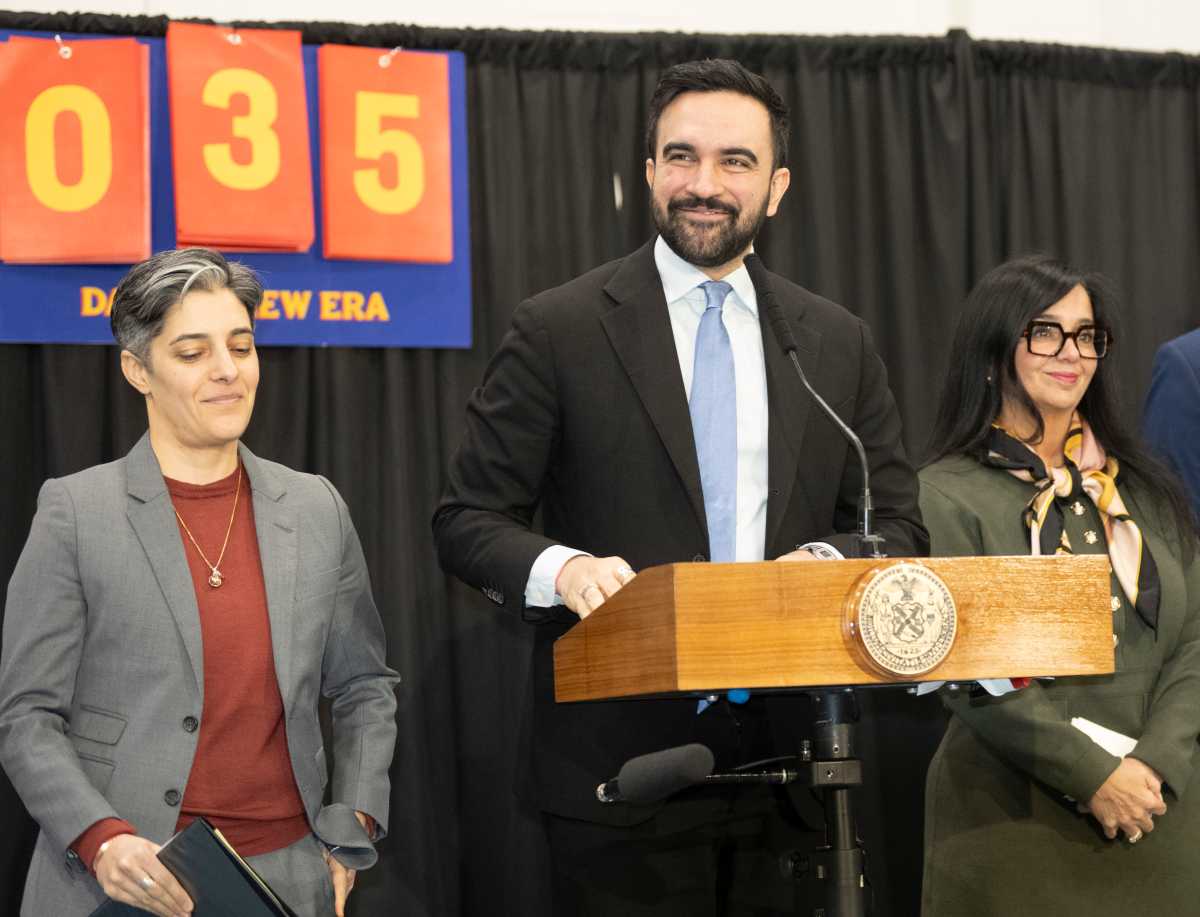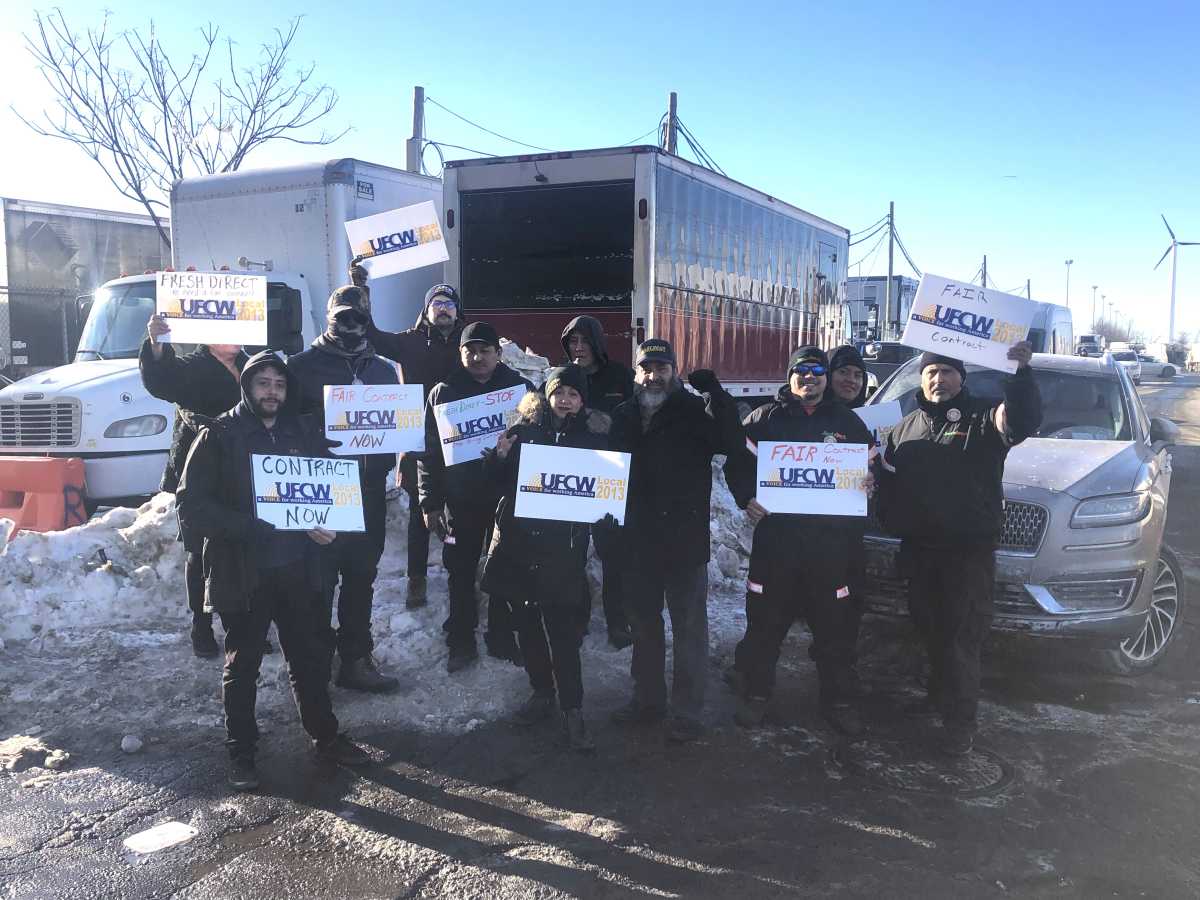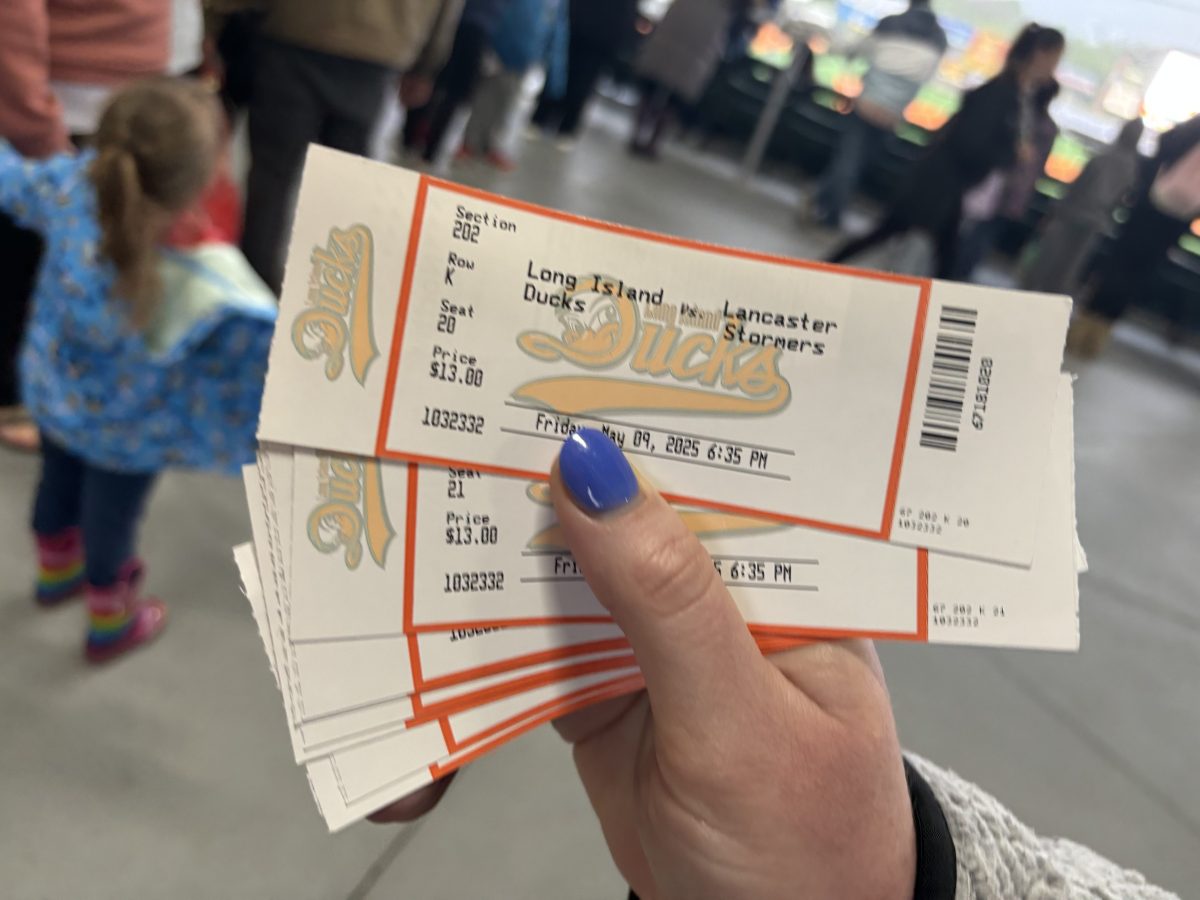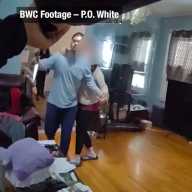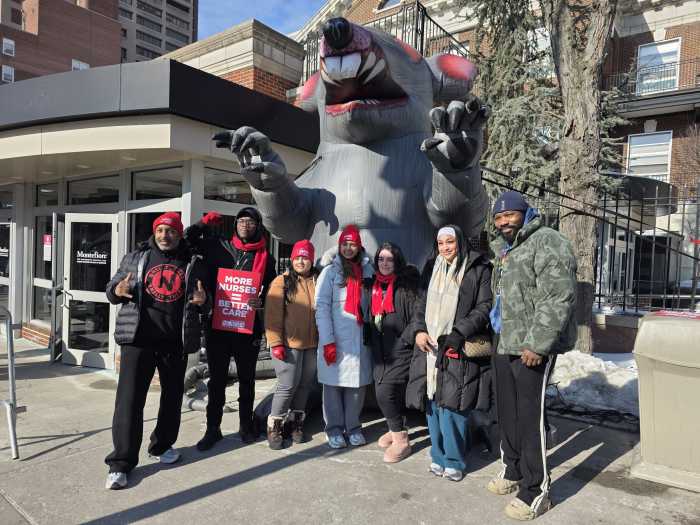Teenagers, including homeless youth, can now learn the ins and outs of building financial wealth through the city’s summer and homeless youth programs.
Mayor Eric Adams signed a bill into law Tuesday that calls for the inclusion of personal finance education as part of New York City’s Department of Youth and Community Development programs.
The bill, Intro. 54, was sponsored by Council Member Farah Louis (D-45) and introduced to the City Council in February 2022. The financial literacy program includes instruction on financial planning — banking, budgeting, credit, debt, investment, saving, and taxes — and is required to be embedded in the city’s Summer Youth Employment Program and Runway and Homeless Youth programs.
Council Member Louis said at Tuesday’s bill signing that her legislation is a major step towards ending intergenerational poverty.
“The city is overdue in focusing on financial toolkits our youth can utilize to be productive citizens,” Louis said. “Intro 54 will create that framework that will provide skill building for economic stability and success.”
In a statement, Adams said the legislation will provide New York City’s youth with the financial know-how that will help them succeed.
“Financial literacy is a foundational skill for our young people, but far too many of our kids are being left behind,” Adams said. “As a young man, I never had information on how to save or how to be financially responsible. We want to help our children understand the power of investing and the power of saving to put them on the road to financial independence.”
Currently, all public high school students — typically seniors — are required to take at least one unit of financial literacy instruction in their economics courses. There are some elementary and middle school students that have access to financial literacy concepts if their schools use the “Passport to Social Studies” curriculum, according to the New York City Department of Education.
Some schools, like Stuyvesant High School and Edward R. Murrow High School, have gone extra lengths to either offer a year-long personal finance course as an elective — as in Stuyvesant’s case — or a modified version of the economics course.
The bill is aimed towards helping New York City’s most vulnerable youth and teenagers, especially those living in unstable environments or are unhoused.
At least two hours of financial literacy education is required to be offered for participants of youth employment programs, transitional independent living support programs, and runaway and homeless youth crisis services programs, per Intro. 54.
Keith Howard, commissioner of the city’s Department of Youth and Community Development, called the decision to pass the bill “forward thinking” and praised Adams for pushing it forward.
“When I was a teen in the Summer Youth Employment Program, financial literacy wa
Adams said at Tuesday’s signing that far too many children, especially Black and brown youth, are being left behind, and that with proper financial education and training they are less likely to fall between the cracks.
“Those students who live in economically challenging communities can benefit greatly,” Adams said. “Everything from check cashing places to not having a checking or savings account could have a major impact on buying a home, purchasing a vehicle, or even paying for college.”
